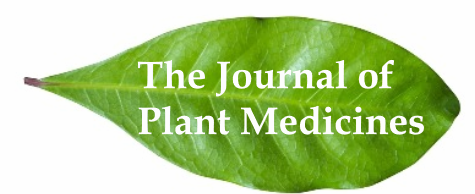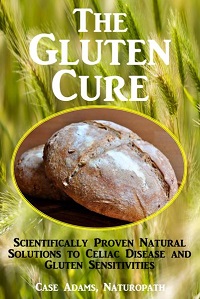Garlic, Vitamin C and Zinc Shorten Common Cold
When we get run down by a cold, it’s natural to pine for something to reduce the symptoms and duration of the cold.
The conventional strategy has been to reach for antihistamines, codeine, intranasal decongestants and even – laughably still often mistakenly prescribed – antibiotics.
As to the latter, said simply: A cold is the result of a virus – a rhinovirus to be more precise. Antibiotics treat bacterial infections – and the over-prescription of antibiotics, as has been modus operandi over the past half century, gives rise to antibiotic-resistant strains of bacteria, ergo superbugs.
The more glaring issue is that research has investigated the above conventional cold strategies and found most are no better than placebo for the purpose of shortening the duration of the common cold.
In this article
Research shows conventional cold remedies no better than placebo
For example, in 2008, researchers from Ireland’s Royal College of Surgeons reviewed 26 clinical trials that included 4,037 people. The studies covered a variety of antihistamines and decongestants, including antitussive and bronchodilator combinations. The findings were dismal. In most studies, they were no more effective than placebo.
Two other studies found that both intranasal fluticasone propionate and beclomethasone dipropionate – nasal decongestants – were also no better than placebo in treating the common cold.
An earlier review of nasal decongestants – this from Australia’s Royal Adelaide Hospital – found that while a single dose had a moderately positive effect, repeated doses of nasal decongestants were no better than placebo.
Other conventional cold strategies have met with similar results. And this says nothing about some of the side effects known to accompany some of these products: Side effects that can cause critical drowsiness and even addiction tendencies in some.
What to do?
Reach for some garlic, vitamin C and zinc.
Efficacy of Garlic for Common Cold Proven
From review research from Australia’s The University of Western Australia we find a study that gave 146 people either a garlic supplement – standardized to 180 milligrams of allicin – or a placebo for 12 weeks. The research found that the placebo group in total had 65 common cold occurrences while the garlic group only had 24 occurrences. This is less than half the number of colds.
Furthermore, when those who were taking the garlic supplement did catch a cold, that cold lasted an average of one day shorter than the colds among the placebo group – some 20-25% shorter.
Another study, from the University of Florida, tested 120 people by giving half 2.5 grams per day of an aged garlic extract supplement and the other half a placebo. Over a six month period, the garlic group had 61 percent fewer number of days of colds, and 58 percent had few incidences of colds, along with 21 percent fewer cold symptoms when they did catch a cold.
The Common Cold with a Capital C – Vitamin C
With regard to vitamin C, a 2013 Cochrane review of 29 clinical trials that including 9,676 cold episodes found a “consistent” benefit of 8 percent reduction of cold duration among adults and 14 percent reduction of cold duration among children. The large metadata calculation utilized vitamin C doses over 200 milligrams per day.
With regard to higher doses, better results were found. Children given between 1,000 and 2,000 milligrams of vitamin C a day had an average of 18 percent shorter colds.
This review also found that regular vitamin C supplementation reduced the severity of colds.
What about Zinc and the Common Cold?
Another 2013 Cochrane database review analyzed 16 therapeutic studies that included 1,387 people, plus two prevention trials. The research found that zinc taken within 24 hours of the appearance of cold symptoms significantly reduced the duration of a cold.
There was a 55 percent reduction in the number of people symptomatic of a cold after seven days compared to those not taking zinc. And the incidence of colds among those taking zinc regularly was 36 percent less than those who were not.
The researchers also noted that significant cold duration occurred when doses were 75 milligrams per day or greater.
At least two of the zinc studies included in the Cochrane review are worth mention, because they utilized a form of zinc – zinc acetate – which produced significant results compared to the overall review that averaged treatment results from different forms of zinc.
The latest of the two, from 2008, comes from Wayne State University Medical School. The study tested 50 volunteers who had symptoms of a cold within the past 24 hours. They were separated into two groups and one group was given a 13.3 milligram lozenge of zinc acetate every two to three hours, while the other group was given a placebo.
The group given the zinc acetate lozenges had a average cold duration of four days, versus over seven days among the placebo group. The average cough duration was a little over two days among the zinc group and five days among the placebo group. And runny nose averaged 4.5 days among the placebo group versus three days among the zinc acetate group.
What about combining Vitamin C and Zinc?
The above research is underscored by a metadata calculation of two clinical studies by Swiss researchers. The research analyzed the results of 94 patients given either 1,000 milligrams of vitamin C plus 10 milligrams of zinc per day, or a placebo.
The research found that the vitamin C plus the zinc significantly reduced cold symptoms over a five-day treatment window. They also found that symptoms disappeared sooner in those taking the combination.
How about Garlic, C and Zinc with other Herbs?
While there are other natural strategies and remedies for the common cold, these three provide a solid foundation for reducing cold duration.
Research has found these three remedies can also be synergistic with other herbal remedies. A study from Egypt’s Green Clinic in Alexandria studied 62 patients with the common cold by giving them either a combination supplement containing 120 milligrams of Echinacea extract 120 mg, 200 milligrams of Nigella sativa oil and 50 milligrams of Panax ginseng extract; along with 100 milligrams of garlic powder, 50 milligrams of vitamin C and 7.5 milligrams of zinc.
The researchers found that while the placebo group’s average cold duration was eight days, the cold duration of the combination supplement group was half that – averaging four days. Severity scores among the supplement group were also significantly less than the cold severity scores of the placebo group.
REFERENCES:
Smith SM, Schroeder K, Fahey T. Over-the-counter (OTC) medications for acute cough in children and adults in ambulatory settings. Cochrane Database Syst Rev. 2012 Aug 15;8:CD001831. doi: 10.1002/14651858.CD001831.pub4.
Taverner D, Latte J, Draper M. Nasal decongestants for the common cold. Cochrane Database Syst Rev. 2004;(3):CD001953.
Lissiman E, Bhasale AL, Cohen M. Garlic for the common cold. Cochrane Database Syst Rev. 2014 Nov 11;11:CD006206.
Nantz MP, Rowe CA, Muller CE, Creasy RA, Stanilka JM, Percival SS. Supplementation with aged garlic extract improves both NK and γδ-T cell function and reduces the severity of cold and flu symptoms: a randomized, double-blind, placebo-controlled nutrition intervention. Clin Nutr. 2012 Jun;31(3):337-44. doi: 10.1016/j.clnu.2011.11.019.
Hemilä H, Chalker E. Vitamin C for preventing and treating the common cold. Cochrane Database Syst Rev. 2013 Jan 31;1:CD000980. doi: 10.1002/14651858.CD000980.pub4.
Singh M, Das RR. Zinc for the common cold. Cochrane Database Syst Rev. 2013 Jun 18;6:CD001364. doi: 10.1002/14651858.CD001364.pub4.
Prasad AS, Beck FW, Bao B, Snell D, Fitzgerald JT. Duration and severity of symptoms and levels of plasma interleukin-1 receptor antagonist, soluble tumor necrosis factor receptor, and adhesion molecules in patients with common cold treated with zinc acetate. J Infect Dis. 2008 Mar 15;197(6):795-802. doi: 10.1086/528803.
Maggini S, Beveridge S, Suter M. A combination of high-dose vitamin C plus zinc for the common cold. J Int Med Res. 2012;40(1):28-42.
Yakoot M, Salem A. Efficacy and safety of a multiherbal formula with vitamin C and zinc (Immumax) in the management of the common cold. Int J Gen Med. 2011 Jan 12;4:45-51. doi: 10.2147/IJGM.S16266.































